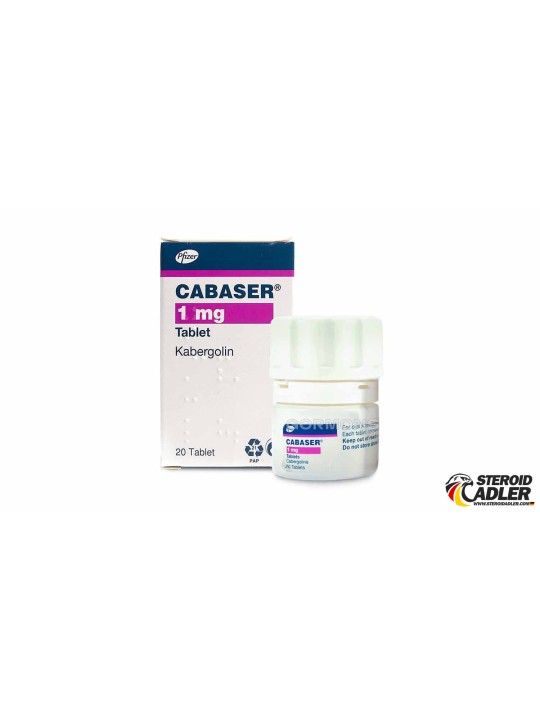Cabaser 1mg
Active substance: Cabergoline, 1mg/tab, 20 tab
Manufacturer: Pfizer
Type: ORAL
Class: Dopamine agonist used to treat hyperprolactinemia
Effect: Helps reduce high levels of prolactin in the body
Dosage: The usual starting dose is 0.25 mg twice a week, with gradual increases as needed, under medical supervision
Cabaser 1mg: A Comprehensive Guide
Cabaser 1mg is a medication that is commonly prescribed to treat conditions such as Parkinson's disease, restless legs syndrome, and hyperprolactinemia. This medication contains the active ingredient cabergoline, which belongs to a class of drugs known as dopamine agonists. Cabaser 1mg works by stimulating dopamine receptors in the brain, which helps to regulate movement and other bodily functions.
Uses of Cabaser 1mg
Cabaser 1mg is primarily used to treat Parkinson's disease, a progressive neurological disorder that affects movement. It can help to reduce symptoms such as tremors, stiffness, and slowness of movement. Cabaser 1mg is also used to treat restless legs syndrome, a condition characterized by an uncontrollable urge to move the legs, especially at night. Additionally, Cabaser 1mg is used to treat hyperprolactinemia, a condition in which the body produces too much of the hormone prolactin.
How to Take Cabaser 1mg
Cabaser 1mg is typically taken orally, with or without food. The dosage and frequency of Cabaser 1mg will vary depending on the condition being treated and the individual's response to the medication. It is important to follow the instructions provided by your healthcare provider and to not exceed the recommended dose of Cabaser 1mg.
If you miss a dose of Cabaser 1mg, take it as soon as you remember. However, if it is almost time for your next dose, skip the missed dose and continue with your regular dosing schedule. Do not double up on doses to make up for a missed dose.
Possible Side Effects of Cabaser 1mg
Like all medications, Cabaser 1mg can cause side effects in some individuals. Common side effects of Cabaser 1mg may include nausea, dizziness, headache, fatigue, and constipation. These side effects are usually mild and will typically improve as your body adjusts to the medication.
In rare cases, Cabaser 1mg may cause more serious side effects such as hallucinations, confusion, chest pain, or shortness of breath. If you experience any of these symptoms while taking Cabaser 1mg, contact your healthcare provider immediately.
Precautions and Warnings
Before taking Cabaser 1mg, it is important to inform your healthcare provider about any medical conditions you have, especially if you have a history of heart disease, mental health disorders, or liver problems. Additionally, let your healthcare provider know about any medications you are currently taking, as they may interact with Cabaser 1mg.
It is also important to avoid alcohol while taking Cabaser 1mg, as alcohol can increase the risk of side effects such as dizziness and drowsiness. If you are pregnant or breastfeeding, talk to your healthcare provider before taking Cabaser 1mg, as it may not be safe for use during pregnancy or while breastfeeding.
Conclusion
Cabaser 1mg is a medication that is commonly used to treat Parkinson's disease, restless legs syndrome, and hyperprolactinemia. It works by stimulating dopamine receptors in the brain, which helps to regulate movement and other bodily functions. While Cabaser 1mg can be an effective treatment for these conditions, it is important to follow the instructions provided by your healthcare provider and to be aware of the possible side effects and precautions associated with this medication.



